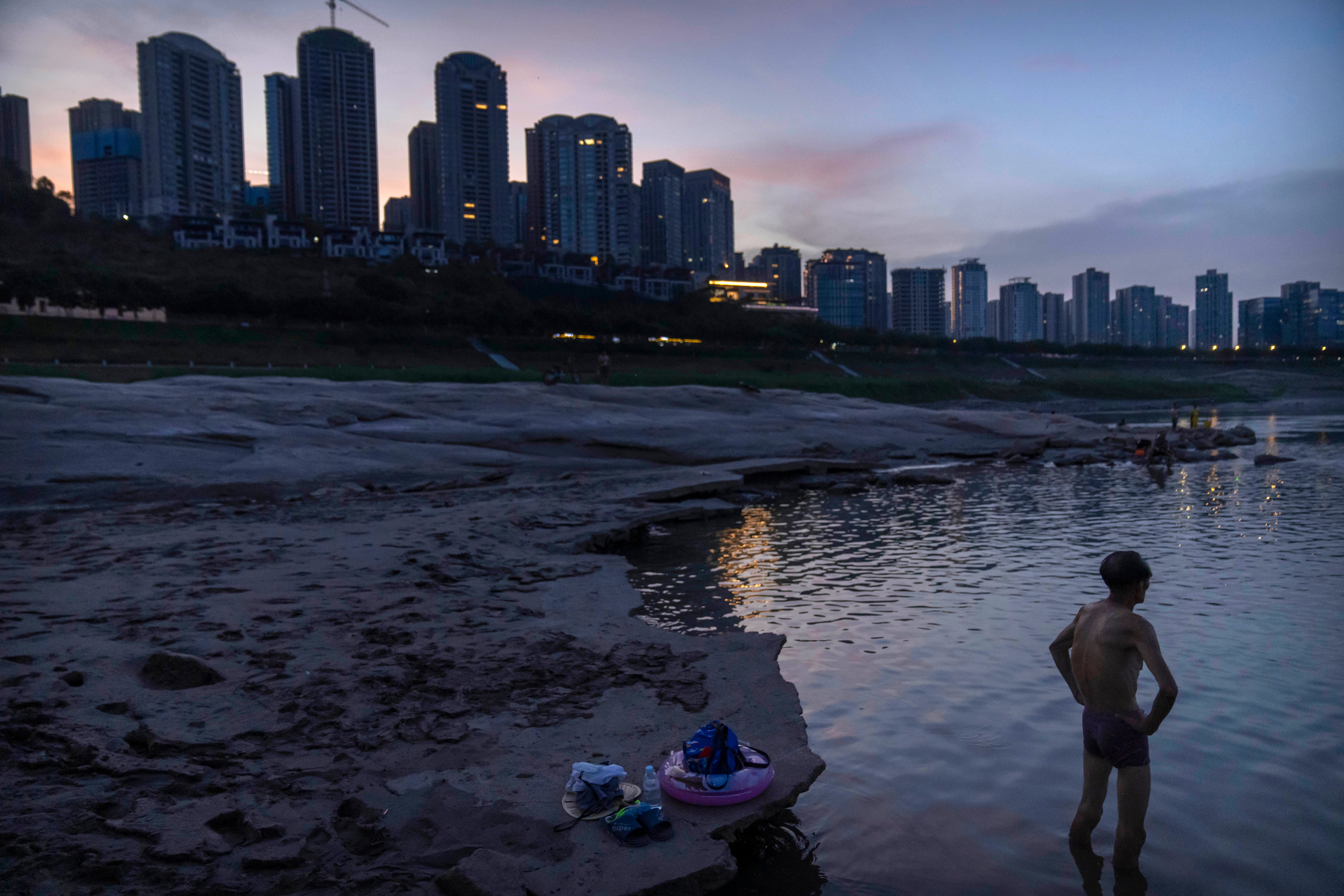Shanghai’s iconic waterfront light show switched off as China suffers energy shortage amid intense drought
The riverfront neighbourhood is a popular tourist attraction
The famous lights of the Bund district in Shanghai have been switched off for two days as China tries to reduce electricity use during a power crisis sparked by a prolonged drought and heatwave that has shut down factories and impacted crop production.
In a notice on Sunday, the Shanghai Landscaping and City Appearance Administrative Bureau said buildings in the Bund district will not be lit on Monday and Tuesday. “We apologise for any inconvenience this may cause.”
The notice is in place until Thursday and comes amid a nationwide power-saving push sparked by an unprecedented heatwave. The order will also impact malls and businesses which will have to switch off lights to reduce their electricity use.
The Chinese government says this summer is the country’s hottest and driest since it began keeping temperature and rainfall records in 1961. Temperatures have exceeded 40C for the past week and longer.
The power-rationing orders have forced factories in China’s southwest region to shut down and has left many businesses severely impacted as they scale down production.
Higher temperatures have led to an increase in electricity demand. At the same time, extreme drought conditions have shrunk rivers and affected the country’s hydroelectricity production. The Yangtze River, Asia’s largest waterway, has dropped to a record low.
Multiple provinces have announced power cuts to cope, and some are attempting to artificially induce rainfall with cloud-seeding.
The drought and heat have also wilted crops. The government is reportedly struggling to find ways to protect the autumn grain harvest, which is 75 per cent of China’s annual total.

Areas across central and northern China have ordered emergency measures to safeguard drinking water supplies after summer rain dropped to half the usual level in some places.
Sichuan province, which has a population of 94 million people, is being especially hard hit as 80 per cent of its power comes from hydroelectric dams. Other provinces rely more heavily on coal-fired power, which isn’t affected.
Economists say if Sichuan’s factories reopen relatively soon, the national impact should be limited because the province accounts for only 4 per cent of China’s industrial output.
Meanwhile, large areas of China have also been hit with flash flooding which has killed dozens of people in the last few weeks. Almost half a million people have been displaced and damage has run to £213m.
The Intergovernmental Panel on Climate Change (IPCC), the UN’s climate science body, has found that China is one of the countries which will be hit hardest by the worsening climate crisis.
Surface air temperature has increased across Asia over the past 100 years with many countries including neighbouring India now suffering record-breaking extreme events like heatwaves, floods and droughts.
Additional reporting by agencies
Join our commenting forum
Join thought-provoking conversations, follow other Independent readers and see their replies
Comments


Bookmark popover
Removed from bookmarks